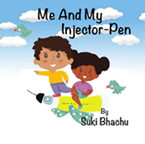Settings work hard to make the best provision they can for young people with specific medical needs. This is not always easy.
Children with an additional health need have a legal entitlement to fully access the whole curriculum (see 2015 Statutory Guidance). This should mean classroom based education alongside, educational visits, social and extra curricular opportunities are available wherever possible to these pupils.
Governing bodies must ensure that arrangements are in place in settings to support young people with medical conditions. This may require liaison with appropriate health and social care professionals to ensure the child / young persons specific medical or health needs are catered for. When additional health requirements - physical and / or mental are properly supported in settings, pupils can play a full and active role and reach their potential.
Working in partnership with the child and their family is essential to create a suitable, supportive and safe environment for pupils with medical needs. Whatever the condition each child is individual and plans should be tailored to their particular needs. Management of some of the more common conditions is explained in more detail below.
Settings should all have a policy for managing medical conditions and medicines. It needs to be clear for all professionals and parents / carers and children.
Training For Professionals
We recommend that for some specific conditions appropriate training is accessed from the specialist organisations. Taking advantage of these training packages means settings can access the training when they require it, knowing it is being provided by experts so the information will be current and credible.
Training links
Writing a Health Care Plan
An individual health care plan helps settings to identify the necessary safety measures required to support young people with medical needs and ensure others are not put at risk. Plans can also help identify training needs for professionals.
A health care plan is a written agreement between the setting and the parents / carers which clarifies the child’s / young person’s needs in their setting.
Top Tips
Administration of Medicines
Many prescribed medicines will not need to be taken during the day. It may be necessary to support their administration to prevent unnecessary absence from the setting.
If it is agreed for medication to be given at the setting the following care should be taken.
Educational Visits
Children and Young people with additional medical heath needs should not be excluded from trips. For some children more planning may be required.
This might include;
How We Can Help?
Health Care Plans
The Norfolk Healthy Child Programme (HCP) does not write individual health care plans. However, sometimes cases may be very complex or the setting may not feel the care they are being asked to provide is reasonable. In these cases our service can be contacted for advice, or to request they support a meeting between schools and parents / carers.
We can signpost you to the appropriate health professionals involved in the child / young person’s care as appropriate. Contact Just One Number on 0300 300 0123.
Attendance Concerns
Some young people have attendance concerns where medical / health reasons are cited as the cause. In this instance a referral can be made to our team; this has been agreed with Norfolk County Council. A health practitioner from the team will arrange to contact the child / young person and their family as appropriate to undertake a health assessment. We will develop a baseline understanding of their needs and develop an action plan.
The joint protocol between health services and schools for managing absence is available to view.
To further inform our assessment we can access information from other health professionals with the pupil and / or parent’s consent. Our service will provide any interventions that meet our criteria. We will strongly encourage children and families to share the outcome of this assessment with school. However it cannot be shared without consent from the pupil and / or family.
Referrals should be made to us at Just One Number on 0300 300 0123.
Resources
Templates are available for care planning.
Guidance on Infection control and recommended absences in school and other childcare settings is available.
Asthma
Anaphylaxis
Diabetes
Epilepsy
Educational Picture Book
 This covers the use of an injector pen (commonly known as an EpiPen). The book entitled ‘Me and My Injector Pen’ by Suki Bhachu is aimed at parents who have small children with food allergies.
This covers the use of an injector pen (commonly known as an EpiPen). The book entitled ‘Me and My Injector Pen’ by Suki Bhachu is aimed at parents who have small children with food allergies.
Like many children, Kymani is allergic to certain types of food. Join him, his best friend Nevaeh and Pip, his superhero injector pen, on a journey to the hospital.
Together they explore the allergic reactions that are caused by the eight most common food allergies, and how Pip’s magic medicine can help.
Information about supporting pupils at school with medical conditions
E-Learning
'All Our Health' offer free, bite-sized e-learning sessions - to improve the knowledge, confidence and skills of health and care professionals in preventing illness, protecting health and promoting wellbeing. The sessions cover some of the biggest issues in public health including;
They contain signposting to trusted sources of helpful evidence, guidance and support to help professionals embed prevention in their everyday practice.